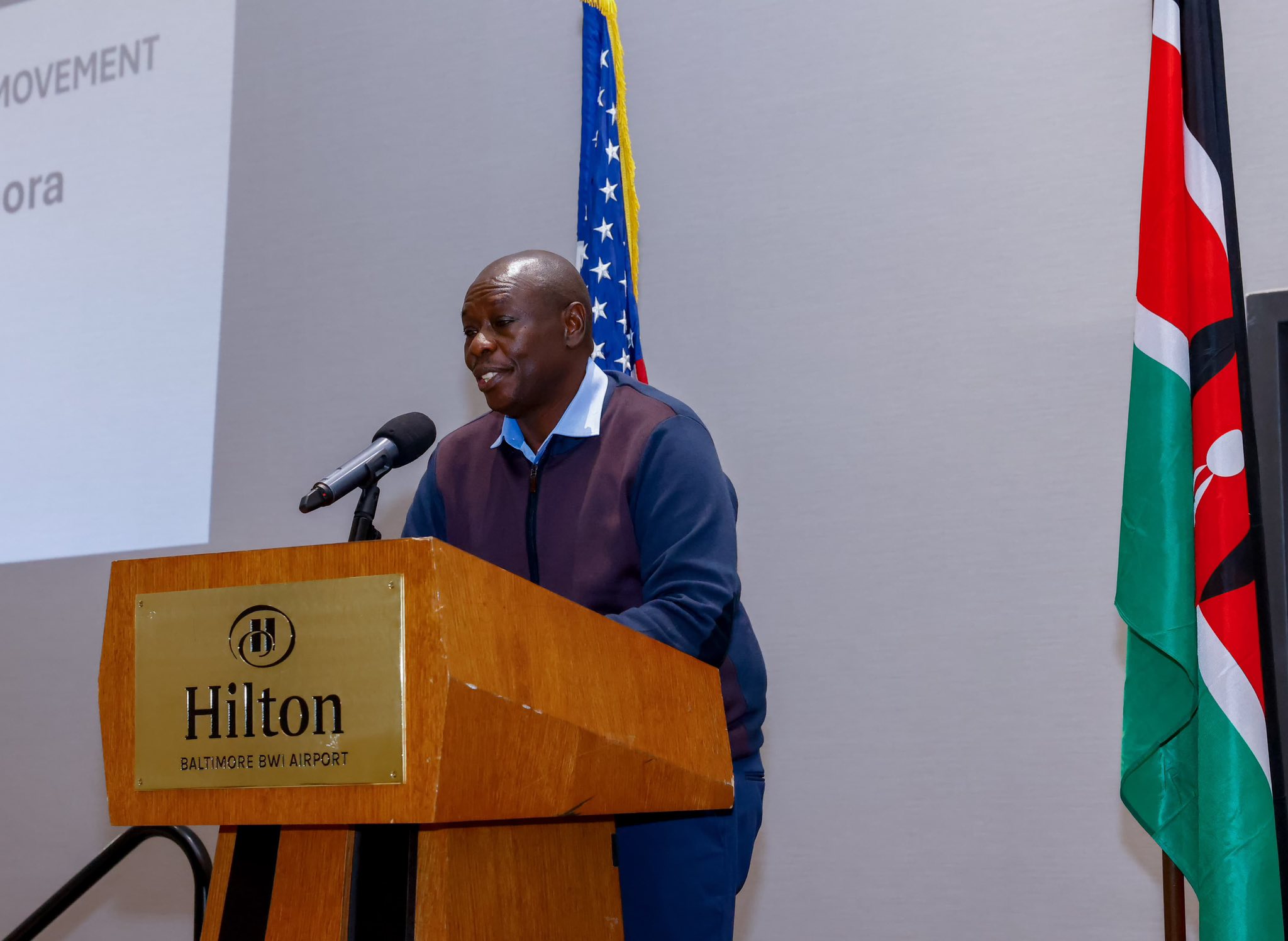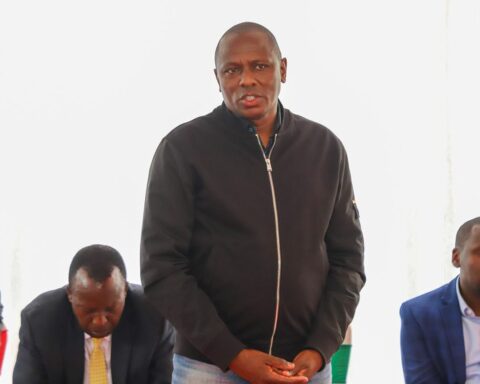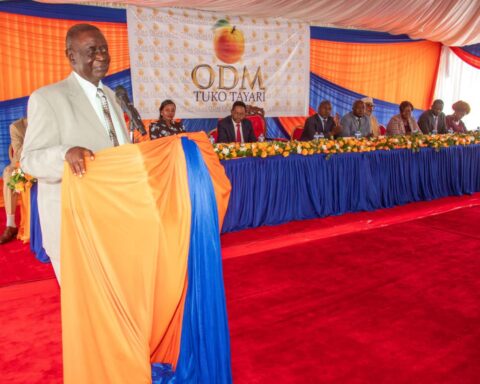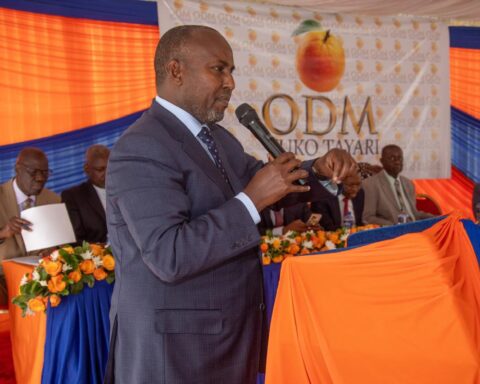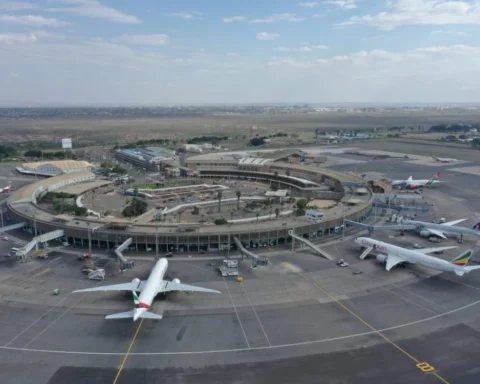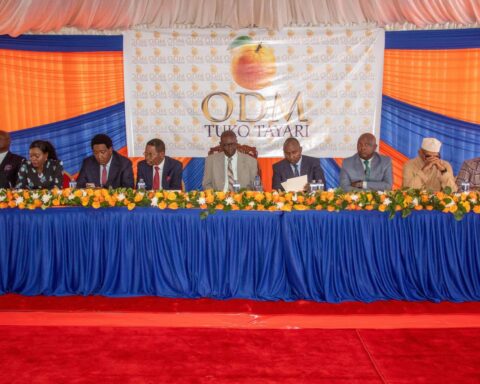What began as a high-stakes tour to court the Kenyan diaspora has rapidly devolved into a diplomatic misfire for former Deputy President Rigathi Gachagua.
His month-long tour of the United States—framed as a strategic outreach for his newly launched Democracy for Citizens Party (DCP)—has instead exposed deep ideological rifts between him and the globally connected, politically astute diaspora community.
From the Pacific Northwest to the East Coast, Gachagua’s attempts to export his “shareholder” narrative have met a wall of rejection from Kenyans abroad, particularly the younger generation who view him as a relic of the very political dysfunction they fled.
Seattle: “You Are Not the Alternative”
Gachagua launched the DCP diaspora engagement in Seattle on July 10, where he opened a branch office and addressed a town hall. But what he anticipated would be a warm reception quickly turned frosty.
“You cannot be the alternative,” one Gen Z attendee told him pointedly. The crowd questioned his legitimacy as a reformer, pointing out that he had been at the heart of the very administration he now criticizes.
Boston: “This Isn’t Opposition—It’s Bitterness”
In Boston, where Gachagua met with business leaders and professionals, the message was even sharper.
“You don’t hate Kenya Kwanza—you’re just bitter they kicked you out,” said one attendee, capturing the prevailing sentiment in the room. While Gachagua attempted to paint himself as a victim of betrayal, the audience—many of whom voted for the Kenya Kwanza coalition—were unmoved by his change of tune.
Instead of ideas, attendees heard grievances. Instead of a vision, they heard vendettas.
Maryland: Tribal Rhetoric Sparks Outrage
In Maryland, his engagements raised concerns over the tribal tone of his message. National Assembly Speaker Moses Wetang’ula was among the first high-ranking officials to call out what he termed the “ethnicization of diaspora engagement.”
“He took his tribalism to the U.S.… addressing only members of his ethnic community while on tour,” Wetang’ula said in a scathing rebuke.
Health Cabinet Secretary Aden Duale echoed the concern, warning that Gachagua’s divisive style had no place in a modern, inclusive democracy.
“The Somalis, Luos, Kisiis, Luhyas—none of them will follow a man whose politics is defined by ethnic entitlement,” Duale stated.
Dallas: “Shareholding Politics Drove Us Out”
In Texas, young professionals didn’t mince words. Gachagua’s controversial “shareholding” doctrine—suggesting government resources should be distributed based on ethnic voting blocs—was directly blamed for deepening inequality and disenfranchisement.
“Your shareholding politics drove some of us to flee Kenya,” said a young engineer during a community forum. “We’re not here to endorse exclusion. We’re here to challenge it.”
California: “We Expect Nothing New from You”
California proved no different. At a town hall in Los Angeles, a group of youth activists questioned the authenticity of Gachagua’s reinvention.
“You and your peers were all in government. We don’t expect anything new from you,” one attendee remarked.
Rather than presenting a roadmap, Gachagua rehashed slogans, grievances, and recycled talking points. But in a crowd of policy-savvy, globally engaged Kenyans, rhetoric fell flat.
No Room for Slogans, No Applause for Tribalism
Unlike the political comfort zones of Kenol, Githurai, or Wamunyoro, the diaspora offers no rehearsed chants, no hired cheerleaders, and no vernacular stations to spin narratives. The forums demanded data, strategy, and logic—not folklore or blame games.
Gachagua appeared unprepared for a constituency that cannot be swayed by victimhood or veiled threats.
In fact, he seemed more surprised than insulted. After decades in Kenya’s high offices, he may have expected deference. Instead, he met defiance.
Criticism From Within His Own Ranks
Back home, even allies are beginning to speak out.
Kakamega Governor Fernandes Barasa accused Gachagua of hypocrisy, saying it was “disingenuous” for the former Deputy President to demonize diaspora remittances—money that has remained Kenya’s top foreign exchange earner.
“It is not fair to travel all the way to the USA just to tarnish the government,” Barasa said. “You oppose the very remittances sustaining our economy.”
Makau Mutua: “Zero Political Capital”
Political analyst and President Ruto’s advisor Prof. Makau Mutua summed it up starkly:
“He has gained zero political capital from this trip. Zilch. Not even one ‘ndururu.’”
